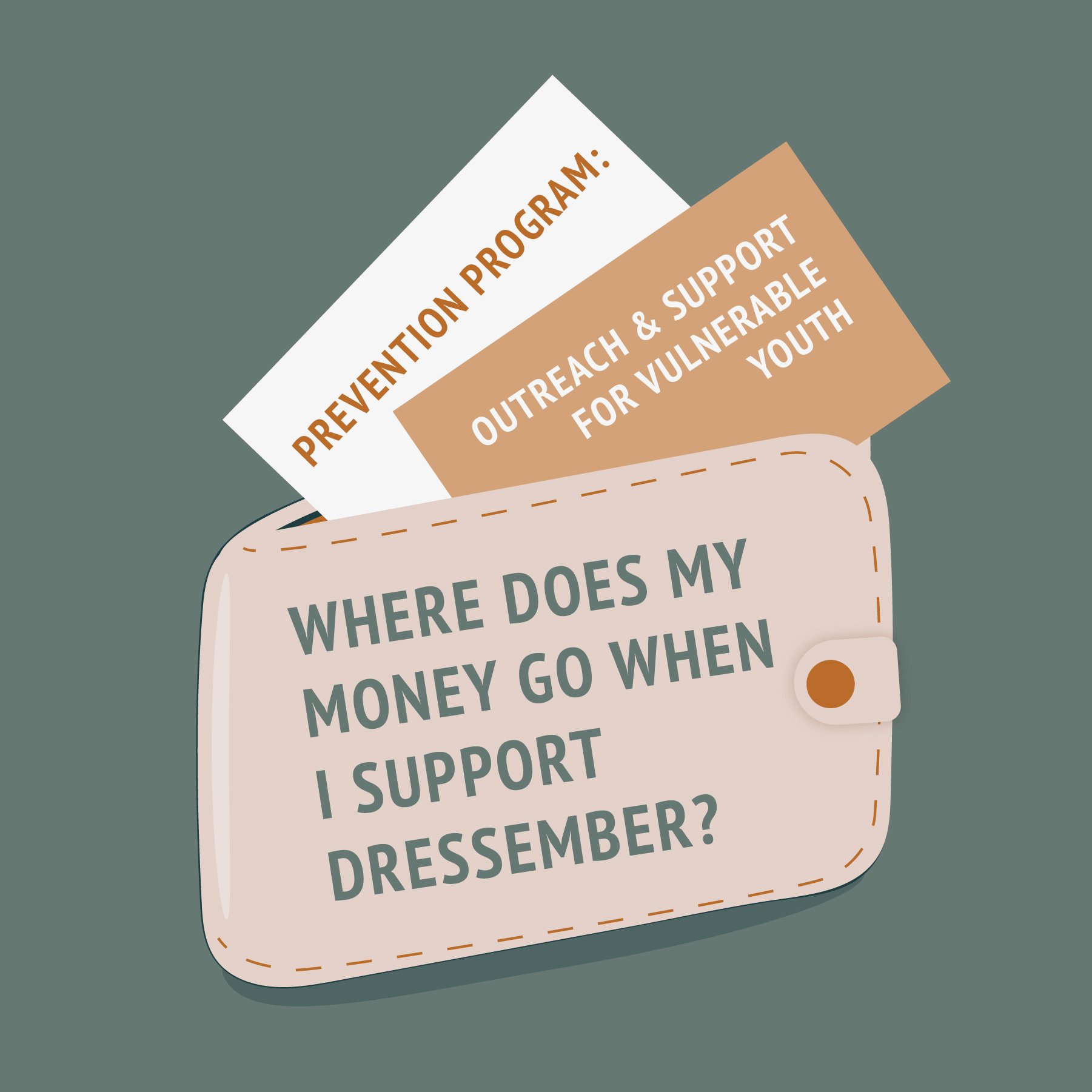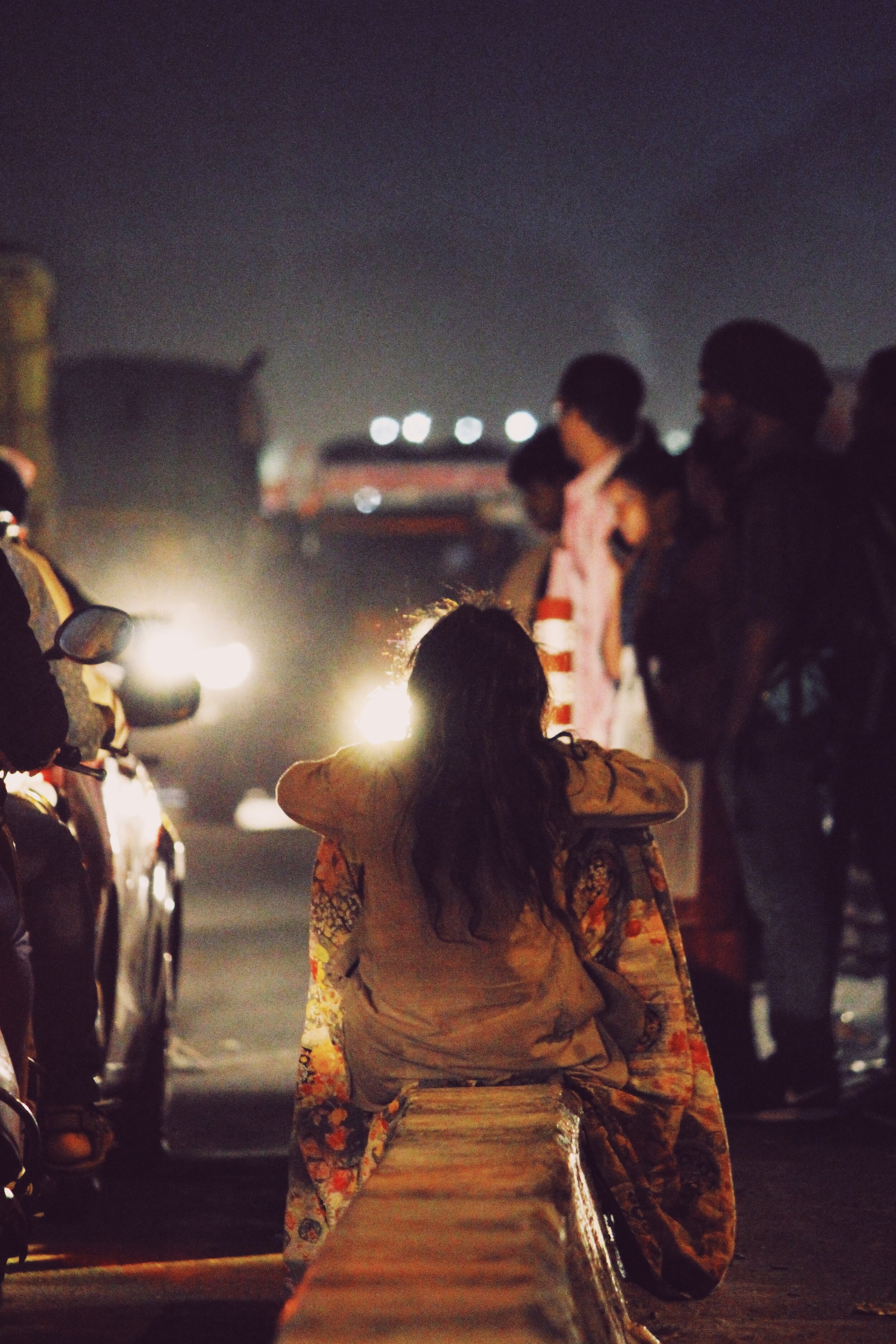The Dressember Network: Outreach & Support for Vulnerable Youth
When people initially seek out ways to support the prevention of human trafficking, they may have a simplistic concept in their head of the highly sensationalized stories of trafficking we see in the media: a woman in a Wal-Mart parking lot being kidnapped on the way to her car or a raid on a massage parlor that is a front for sex trafficking or even the oft-repeated “if you see something, say something” slogan. While these stories can be - and frequently are - realities, oft-forgotten are the stories of everyday tragedy, the stories of groups that are frequently not seen.
In particular, we need to ensure that we focus prevention on those experiencing homelessness and displacement. In fact, a 2017 study by Covenant House indicates that the key to ending youth human trafficking may be ending homelessness, as 40% of homeless young women and 25% of homeless young men have experienced trafficking. Homelessness yields vulnerability in the form of lack of shelter, but also hunger and poverty. The burden of this situation can lead young people to feel as though they have few options to escape. Many are coerced into sex trafficking or worse.
A subset of the housing insecure community that undergoes particular challenges is that of young members of the LGBTQ+ community, which make up 40% of homeless youth. LGBTQ+ youth facing homelessness often fall prey to housing insecurity after fleeing abuse and/or lack of acceptance at home due to their sexual orientation or gender identity. The experience of homelessness places LGBTQ+ youth in an exceptionally vulnerable situation.
Traffickers promise to accept youth and provide for their basic needs and “seek to meet the [LGBTQ] youth’s needs as a way to build rapport and dependency. They may offer a sense of family, protection, or love to build a sense of relationship and loyalty.” The Covenant House study showed that 27% of homeless LGBTQ+ youth have reported experiences that match the U.S. definition of human trafficking. A study by the Polaris Project also showed that LGBTQ+ youth experiencing homelessness are 7.4x more likely to experience acts of sexual violence than are heterosexual youth experiencing homelessness.
Photo by Banjo Emerson Mathew on Unsplash
Even if not experiencing homelessness, LGBTQ+ youth are at a higher risk of being trafficked due to lack of community, social alienation, low self-esteem (which is characteristic for their age group), and frequent experiences of poverty. Law enforcement agencies are frequently indifferent or hostile toward reports from LGBTQ+ youth, largely due to the stigma surrounding their sexuality. All of these factors coalesce to make it exceptionally difficult for this marginalized group to get the help that they need.
However, our prevention efforts do have a very real impact on the lives of these groups. Through the Dressember Network, we provide outreach and support for youth experiencing homelessness and work to reduce the victimization of young members of the LGBTQ+ community. Our advocacy efforts in Wisconsin and Georgia allow the Dressember Network to provide relief and prevention that meaningfully impacts those often forgotten when we talk about human trafficking.
The Dressember Network program in Wisconsin works to combat the vulnerabilities to trafficking that are present in the LGBTQ+ community by providing LGBTQ+ identifying youth with the resources that they need to feel seen and heard. One key piece of that is that the organization is largely led by survivors. This allows the organization to be particularly responsive to the realities of trafficking experienced by the youth that they serve.
Through the Youth Services Center in Georgia, the Dressember Network provides crisis intervention, court and legal advocacy, trauma-informed case management, evidence-based group therapy, empowerment activities, and connections to community-based support. These programs help to empower the most vulnerable youth, particularly LGBTQ+ youth, which in turn helps to mitigate and reduce many of the risk factors presented in their day-to-day lives.
Partnerships with organizations that have a keen understanding of their communities and the survivors and high-risk groups living within them allow the Dressember Network to effect real change in a variety of key ways. Our advocacy efforts provide members of vulnerable groups with the tools and resources necessary to prevent human trafficking. And, by supporting these strong partnerships, we can work to end human trafficking once and for all as we continue to target the systemic issues of homelessness and marginalization that increase vulnerability.
The Dressember Network is made up of 20 organizations that support programs in the following impact areas: advocacy, prevention, intervention, and survivor empowerment. In Wisconsin, we partner with Pathfinders, a local agency-led homeless outreach and support program focused on youth ages 11-25 who are experiencing homelessness and are at risk of sexual exploitation. In Georgia, we partner with youthSpark, an organization that provides trauma-informed case management, therapy, and court advocacy for LGBTQ+ identifying youth. When you support Dressember, you help dismantle trafficking holistically and in a way that prioritizes survivor needs and voices. Ready to join us? Register to become an advocate or make a donation today.
About the Author
Miranda Cecil is a second-year at Northeastern University School of Law. She graduated from the University of North Carolina in 2020 (go heels!) and shipped up to Boston. As a North Carolina transplant in New England, she loves exploring her new area on the weekends. In her free time, she enjoys cross-stitching, cycling, and reading. She hopes to use her legal degree and a passion for urban development to continue advocating for human trafficking survivors (and, despite the Boston winter, looks forward to the style challenge this December).



